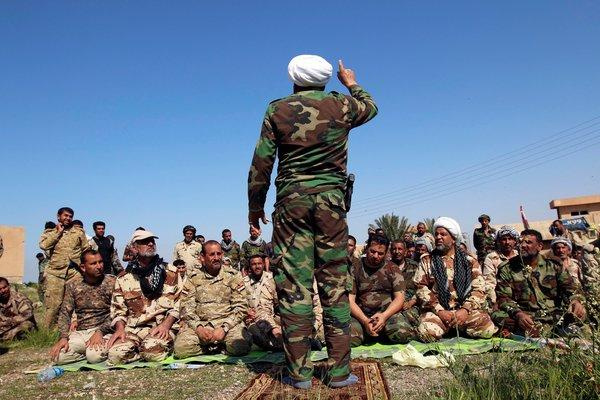Why Did Iran Pull Out Its Military Advisors from Iraq?

A Middle East expert in Tehran believes: “Trump insists on keeping US troops in Iraq to ease pressures on the White House. Iran pulling its advisors out of Iraq will not lead to increased US influence in this country.”
In his visit to Iraq, Donald Trump announced that the US is not planning to withdraw from this country, while the Iranian Ambassador in Baghdad has said that all of Iran’s military advisors have left Iraq. Will this pullout provide an opportunity for further US military influence in Iraq?
Middle East analyst in Tehran, Massoud Asadollahi, says: “The reason for adopting two different approaches by Trump on the US withdrawal from Syria and staying in Iraq in the same timeline reflects the great differences of opinion between Trump and the Pentagon, and even then CIA.”
He added: “The resignation of the US Secretary of Defense following Trump’s decision to pull US troops out of Syria and the opposition of the Congress, US military-security organs, and even the Republican Party have prompted Trump to announce he is not planning to pull out of Iraq to ease pressures on the WH; because, Trump is currently accused of moving in the opposite direction to US interests.”
He reiterated: “If the pressures persist, Trump may change his mind in the 60-100 days planned for US troop withdrawals from Syria; he may either stop the pullout altogether or withdraw a small number as a show.”
Speaking about the impact of Iranian advisors leaving Iraq at this time and increased US influence in this country, Asadollahi stated: “These two issues are not mutually exclusive; because, Iranian and US military presence in Iraq differ in nature. The IR of Iran only had advisors there. There was no need for Iranian troops there after the mobilization of Al-Hashd Al-Sha'abi and Iran only had to be there in an advisory capacity. But the number of troops and type of US presence there shows that they have other goals in Iraq in addition to their advisory capacity and boots on the ground. Therefore, an Iranian withdrawal will not affect the US security-military agenda.”
He emphasized: “Trump’s announcement is an indication of long-term US plans in Iraq. We also witnessed direct American intervention in recent Iraqi elections. Also, Daesh has been heavily defeated in Iraq and security is mostly sustainable in this country. As such, the pretext of Iranian presence in Iraq is eliminated for the US with the exit of its advisors.”
He added: “Iran is not seeking to influence Iraq politically with a military presence. This would be intervening in Iraq’s internal affairs. But trade and economic ties between the two countries is on the rise. A study of the volume of trade and tourism here shows a growing trend. Iran needs to ease its commercial laws for a better use of Iraq’s market by eliminating obstacles.”
Asadollahi continued by saying: “Increased trade ties between Iran and Iraq in various sectors can strengthen the position of groups supported by or aligned with Tehran. Once people see the positive impact of Iranian trade activities in their country, it will also increase the influence of these groups. The election of an Iraqi president favouring Iran also indicates Tehran’s influence among this country’s political currents.”
Source: Persia Digest

